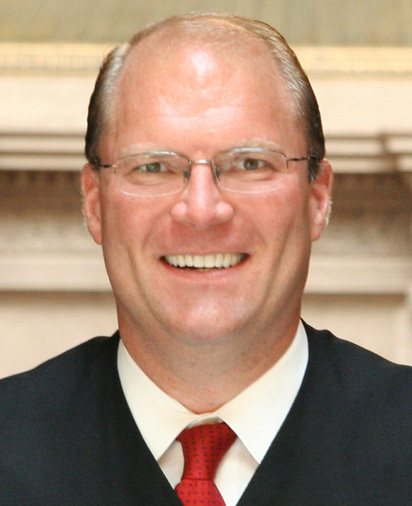Why John Doe Won’t Die
The court cases haven’t ended. Will U.S. Supreme Court take the case?
Americans, as they look at countries like Russia, are thankful they have an independent judiciary that serves as a check on both the legislative and executive branches. But recent Wisconsin Supreme Court decisions on the John Doe investigations raise the question whether the court views itself as a branch of Gov. Scott Walker’s administration.
The first investigation, often referred to as Doe I, resulted in six convictions of people including three staff members working in Walker’s Milwaukee County Executive Office who illegally worked on campaigns on county time. This investigation started when the office failed to produce financial records of the veterans’ organization—in retrospect unsurprising since one of the thieves was the assistant chief of staff in the office. This led to examination of the email and other computer records of office employees—including an illegal private email system set up in the office—which led, in turn to evidence of the other crimes.
While the investigation came close to Walker, in the end he escaped. From the evidence publicly available so far, his closest call was related to the county’s decision as to whether to renew a lease in the Reuss Plaza building. In the words of a request for a search warrant, “I submit that there is probable cause to believe that Scott Walker, John Hiller, and Andrew Jensen, in concert together, committed a felony …”
Hiller and Jensen both represented the Reuss Plaza. Hiller was also the chair of Walker’s campaign committee and seems to have aggressively tried using his connection with Walker to gain an advantage over other bidders. As described in the search warrant request, Walker’s chief of staff, Tom Nardelli, sent an e-mail to the county public works director asking him to request a six-month extension on the existing Reuss lease, to allow the county time to evaluate its space needs.
Using the private e-mail account, Walker sent an e-mail to Hiller saying that he needs “ … a letter .. saying no to an extension.” Subsequently Jensen sent the letter denying the extension. In the words of the warrant request, “the request from County Executive Scott Walker requesting the rejection of Milwaukee County’s request for an extension made by Walker’s own Department of Transportation and Public Works, was against the interests of Milwaukee County according to witnesses.”
At some point the Doe I investigation unearthed evidence of coordination between Walker’s campaign committee for governor (Friends of Scott Walker) and supposedly independent groups such as Wisconsin Club for Growth and Wisconsin Manufactures and Commerce. While not technically illegal, long-time federal and Wisconsin law required that such coordination be treated as a contribution to the campaign, likely exceeding the allowable contribution limit. Thus was born Doe II.
Because the individuals being investigated lived in at least five counties, five district attorneys became involved. The investigation was put under the control of the Wisconsin Government Accountability Board which hired Francis Schmitz, an attorney in private practice, as the Independent Prosecutor.
The targets of these investigations have been prolific in filing lawsuits to derail the investigation and destroy Wisconsin’s campaign regulations. In addition to the three suits that the state high court addressed, here are three others:
- O’Keefe v. Chisholm was a federal lawsuit that challenged Doe II, in which Federal Judge Rudolph Randa ruled for O’Keefe and the Wisconsin Club for Growth. It was unanimously reversed by a three-judge panel of the 7th Circuit Court of Appeals. O’Keefe’s appeals to the full appeals court and the US Supreme Court were rejected. Thus the 7th Circuit’s reversal of Randa is final.
- Archer v. Chisholm stems from Doe I. Cindy Archer was an official in the Walker county administration who alleges she was mistreated as part of the investigation. Although initially brought in state court it was quickly moved to federal court since it claimed violation of federal law. It is ongoing.
- O’Keefe v. Wisconsin Government Accountability Board is a state case presently being argued in Waukesha County.
In addition to the lawsuits, the investigations have been the subject of numerous unverified claims in the Wall Street Journal and the right wing media, including, National Review and, most notably the obsessive Wisconsin Watchdog which claims its latest post is “Part 296 of 294 [sic] in the series Wisconsin’s Secret War.” These publications claim numerous violations of proper procedures during the serving of search warrants.
The only case where these claims were put to the test was the search for evidence at Archer’s residence. The initial claims by Archer had to be completely rewritten once evidence on the search, including an audio tape, were released, as the audio did not support her original claims.
None of the presumed victims of searches conducted as part of Doe II has brought suit, as they certainly should if the accounts are true. One likely explanation is that, as with Archer’s, the accusations would not survive scrutiny. A brief filed by investigators in connection with the Archer suit states that audio tapes were made of every search and interview.
The lack of evidence has not stopped either Judge Randa or the Wisconsin Supreme Court majority from treating them as proven. Usually no source is referenced except in the cases of Justice Annette Ziegler, who credits Wisconsin Watchdog and the National Review as her source for allegations she repeats as fact.
The core constitutional issue in these cases is whether the First Amendment, protecting free speech, is violated by laws regulating communications coordinated between candidates and supposedly independent groups. Existing federal and Wisconsin law allowed such coordinated communications but required them to be treated as campaign contributions.
Opponents of the investigations argued that such laws are constitutional only if limited to so-called “express advocacy,” that is, they explicitly advocate the election or defeat of a candidate. Under this argument, an ad accusing John Smith of misconduct or an admiring profile of Mary Jones are both “issue” ads, and exempt from restrictions on coordination.
The problem with this argument is that the US Supreme Court has never accepted it. In overturning Judge Randa the 7th Circuit Court of Appeals reiterated this: “No opinion issued by the Supreme Court, or by any court of appeals, establishes (‘clearly’ or otherwise) that the First Amendment forbids regulation of coordination between campaign committees and issue-advocacy groups——let alone that the First Amendment forbids even an inquiry into that topic.” (O’Keefe v. Chisholm)
The 7th Circuit is not alone. This July the 3rd Circuit Court of Appeal ruled in Delaware Strong Families v. Delaware Attorney General that “the Supreme Court has consistently held that disclosure requirements are not limited to ‘express advocacy’ and that there is not a ‘rigid barrier between express advocacy and so-called issue advocacy.’”
What the US Supreme Court has done is repeatedly point to the lack of coordination as a reason that other restrictions on issue ads by independent groups can be safely removed. The lack of coordination, in Court’s view, makes such ads less effective.
The US Supreme Court has never accepted a case which challenges restrictions on coordinated communications. Therefore it has not addressed where discussion turns into coordination. A heavily redacted brief from Schmitz to the Wisconsin Supreme Court suggests where he would draw the line:
… the Special Prosecutor takes no issue with candidates or candidate committees appearing at a fundraiser for a “like-minded” yet nevertheless independent group. Indeed, he does not object to any form of candidate interaction with an entity that is truly independent. Many examples of interaction between a candidate committee and a third party entity that maintains its independence of the candidate can be imagined, as the Movants have done. The facts here, however, tip the scales at the opposite end of the spectrum. We do not deal here with interaction in the form of discussion and exchange of ideas. We deal here with a candidate who was sent by his (redacted) committee and by (redacted) specifically to collect substantial amounts of cash for (redacted) to be used to the benefit of his campaign, all by a design (redacted)
In their decision against Doe II, the Wisconsin Supreme Court majority quotes extensively from the Buckley decision. Yet, it never acknowledges that, by ruling that the Constitution only allows regulation of “express advocacy,” it is disagreeing with that decision. Do they think the US Supreme Court was wrong? Is something unique about Wisconsin that makes the Constitution different here than elsewhere? They don’t say. Instead they claim “the special prosecutor’s legal theory is unsupported in either reason or law,” neglecting to note that his theory is also the US Supreme Court’s legal theory.
The multiple suits against the investigations allow a view of how the arguments have evolved. In O’Keefe’s federal suit, there are repeated assertions made that the investigations are animated by Milwaukee District Attorney John Chisholm’s animus towards Walker. To the extent he enters the picture at all, the Special Prosecutor is described as largely a figurehead, doing Chisholm’s bidding. Archer’s lawsuit makes much the same argument. No credible evidence is presented for either of these claims, other than that Chisholm was elected as a Democrat and is friendly with Mayor Tom Barrett, who ran against Walker.
In O’Keefe’s Waukesha County suit against the GAB, however, Chisholm becomes a non-player. Instead, Schmitz, the Special Prosecutor, takes on the role of the villain, described as largely out of the control of the GAB.
The majority decision written by Michael Gableman is full of loaded phrases that make it clear that the court majority dropped all pretense of neutrality. Without bothering to at least hold a hearing the majority asserted:
- That the Special Prosecutor “employed theories of law that do not exist in order to investigate citizens who were wholly innocent of any wrongdoing.”
- That there was “a ‘perfect storm’ of wrongs that was visited upon the innocent” targets “and those who dared to associate with them.”
- That the targets of the investigation were victims of “the tyrannical retribution of arbitrary or capricious government prosecution.”
- That targets were subjected to “paramilitary-style home invasions conducted in the pre-dawn hours” in retaliation for their free speech.
- That “documents were subpoenaed and/or seized without regard to content or relevance to the alleged violations”
- That the investigation was a “fishing expedition” and a campaign of “harassment and persecution by a vengeful [and unethical prosecutor.”
What actually happened? Given the Wisconsin Supreme Court’s insistence that all evidence be destroyed, there is a good chance we will never know for sure. Those inclined to believe folks like Eric O’Keefe (whose Wisconsin Club for Growth was under investigation) will remain convinced massive violations of people’s rights took place. Skeptics will believe the court majority was part of cover-up of criminal acts by Walker and others. It doesn’t help that the four justices remain tone deaf to the ethical issues resulting from the $8 million in campaign contributions they received from two organizations targeted by the investigation.
Will the federal courts step in? If instead of coming from a state Supreme Court, the Doe decision was from a lower federal court, it seems almost certain it would be overturned, as happened recently with lower court decisions in the Delaware Strong Families and O’Keefe v Chisholm cases.
However, the Supreme Court might view this decision as a decision by the State of Wisconsin. The decision in Buckley represents a ceiling, not a floor, on government regulation. In other words, if a state decides to allow coordination between candidates and outside groups, it may be free to do so.
There is also the intriguing question of what the federal district judge will do with the Archer case. Given the likelihood that other similar suits may be brought against prosecutors it would appear it is incumbent on him to protect the evidence the Wisconsin Supreme Court order destroyed or returned. After all, if others charge, as did Archer, that the prosecutors acted without probable cause, how can that be fairly litigated without being able to examine the evidence?
Finally there is the mysterious decision by Archer’s attorneys to insert several paragraphs into Archer’s revised complaint quoting from the Wisconsin Supreme Court decision. This almost requires the federal judge to try to reconcile the irreconcilable—the contradictions between the state and US courts’ decisions.
Political Contributions Tracker
Displaying political contributions between people mentioned in this story. Learn more.
- September 8, 2018 - Tom Barrett received $200 from John Chisholm
- March 14, 2016 - Tom Barrett received $50 from John Chisholm























Please help us all….
So the evidence, while under order for destruction has not yet been physically destroyed? Given the recent “firing” of Schmitz, is there any room for any one of the other DAs to step in and appeal at least that part?
Thanks for a clear history of the 2 John Doe investigations and a summation of the legal and political issues that need to be addressed by the Supreme Court. Back in August of 2014, the Journal Sentinel ran an article on how the Walker campaign was encouraging wealthy interests to contribute money to the Wisconsin Club for Growth.
An email from Kate Doner, a Walker campaign consultant, to R. J. Johnson spills the beans, “The Governor is encouraging all to invest in the Wisconsin Club for Growth,” because “Wisconsin Club for Growth can accept corporate and personal donations without limitations and no donors disclosure.”
Who is R. J. Johnson? In his book, Unintimidated, Walker states that he and Johnson have worked together for more than 2 decades. Walker refers to Johnson as his “chief political strategist.” Johnson worked simultaneously for the Walker campaign and for the Wisconsin Club for Growth.
In her email to Johnson, Doner goes on to state, “As the Governor discussed . . . he wants all of the issue advocacy efforts run thru one group to ensure correct messaging.”
In another email, this time to Walker and others, Doner lists ideas for raising money for the Wisconsin Club for Growth. “Take Koch’s money,” “Get on a plane to Vegas and sit down with Sheldon Adelson,” and “Go heavy after (corporations) to give.”
It does not take Sherlock Holmes to figure out what the plan was. Walker talks to all his wealthy admirers and instructs them to send money to the Wisconsin Club for Growth. Why? To circumvent all of the laws designed to limit big money’s ability to corrupt our political process. Then Walker in conjunction with his “chief political strategist,” Johnson, convert big money into “correct messaging.”
It will now be up to the Supreme Court to ultimately decide whether this violates the letter of the law. The court of public opinion, on the other hand, has already made its position clear in poll after poll after poll. A clear majority of citizens believe that unrestrained big money contributions in elections violates the spirit of our laws and of our democracy. To paraphrase Joseph Stiglitz, when one person, one vote is subverted into one dollar, one vote, the voice of the people is drowned out by the blare of big money corruption.
Bruce, thank you very much.
WRT “In addition to the lawsuits, the investigations have been the subject of numerous unverified claims in the Wall Street Journal ….” AFAIK, it’s only the editorial page of Rupert Murdoch’s WSJ, because the WSJ’s newsroom refuses to publish what you rightly call “unverified claims.” Paul Gigot, the editor of the WSJ’s editorial page editor is on wingnut welfare from the Bradley Foundation’s Mike Grebe. “2010 Bradley Prize recipients: Michael Barone, Paul Gigot, Bradley Smith, and John Taylor” http://www.bradleyfdn.org/On-Lion-Letter/ID/700/2010-Bradley-Prize-recipients-Michael-Barone-Paul-Gigot-Bradley-Smith-and-John-Taylor That “prize” was worth $250,000 to Gigot.
In May Mike Grebe and other oligarchs got Paul Gigot named, “…Pulitzer chair.”
“The Pulitzer Board chairmanship is a one-year appointment. Board members serve a maximum of nine years.”
http://www.politico.com/blogs/media/2015/05/wsjs-paul-gigot-named-pulitzer-chair-206554
Walker, Archer, Gableman, Ziegler, Prosser, Bradley, O’Keefe, The Wisconsin Club for Growth, Wisconsin Manufactures and Commerce are not really Republicans. They preach the gospel of The Tea Party. The Party which has no use for government motivated by the common good, only by undoing it by any means.
They need to be brought into court and shown that their trampling on the ethics and rules of good government has consequences.
Mr. Chisholm, the citizens of Wisconsin and I request that you take up this cause and fight to protect the status of those who do not have the financial means to influence elections.
Bruce, thankj you for a very good job of summarizing the various court cases, and the unbelievable conduct of the four Wisconsin Supreme Court Justices who were elected with $8 million of spending by two of the parties who they which those justices “exonerated” without hearing any evidence — and did so by completelymis-stating and contradicting the U.S. Supreme Court’s decisions regarding coordinated campaign expenditures by third parties.
Rich,
At the risk of more detail than anyone wants, here are a couple of partial responses to your questions:
1. The WI SC has ordered that if any of the DAs want to intervene they must do so “such motion or motions for intervention shall be filed with the clerk of this court on or before December 18, 2015.”
2. In the Archer case, the federal judge issued a briefing schedule for the motion to protect the evidence that runs to the end of January (motion, Archer response to motion, response to response), so presumably any decision would come after that. Personally I think it would be very hard for the federal courts to allow the destruction of evidence if there is any possibility of more Archer-like suits, but courts move in mysterious ways..
Seven judges have ruled that this was illegal investigation, Supreme Court has said that Schmitz appt. was illegal. It was Chisholm vendetta getting ever for his wife. Federal court decision around country have ruled that advocacy speech is free and is not subject to state rules.
Left does not give up, they are creepy slimes. Chisholm puts this vendetta ahead of the Milwaukee crime wave. The white, male, liberal, racists in MIlwaukee do not care about inner city families, kids can’t read, heroin epidemic, fentanyl deaths, human trafficking of our young girls and go on this vendetta.
Blatant judicial misconduct is one thing, but blatant judicial incompetency? Actual kangaroos would make better judges than the conservative majority of the Wisconsin Supreme Court.